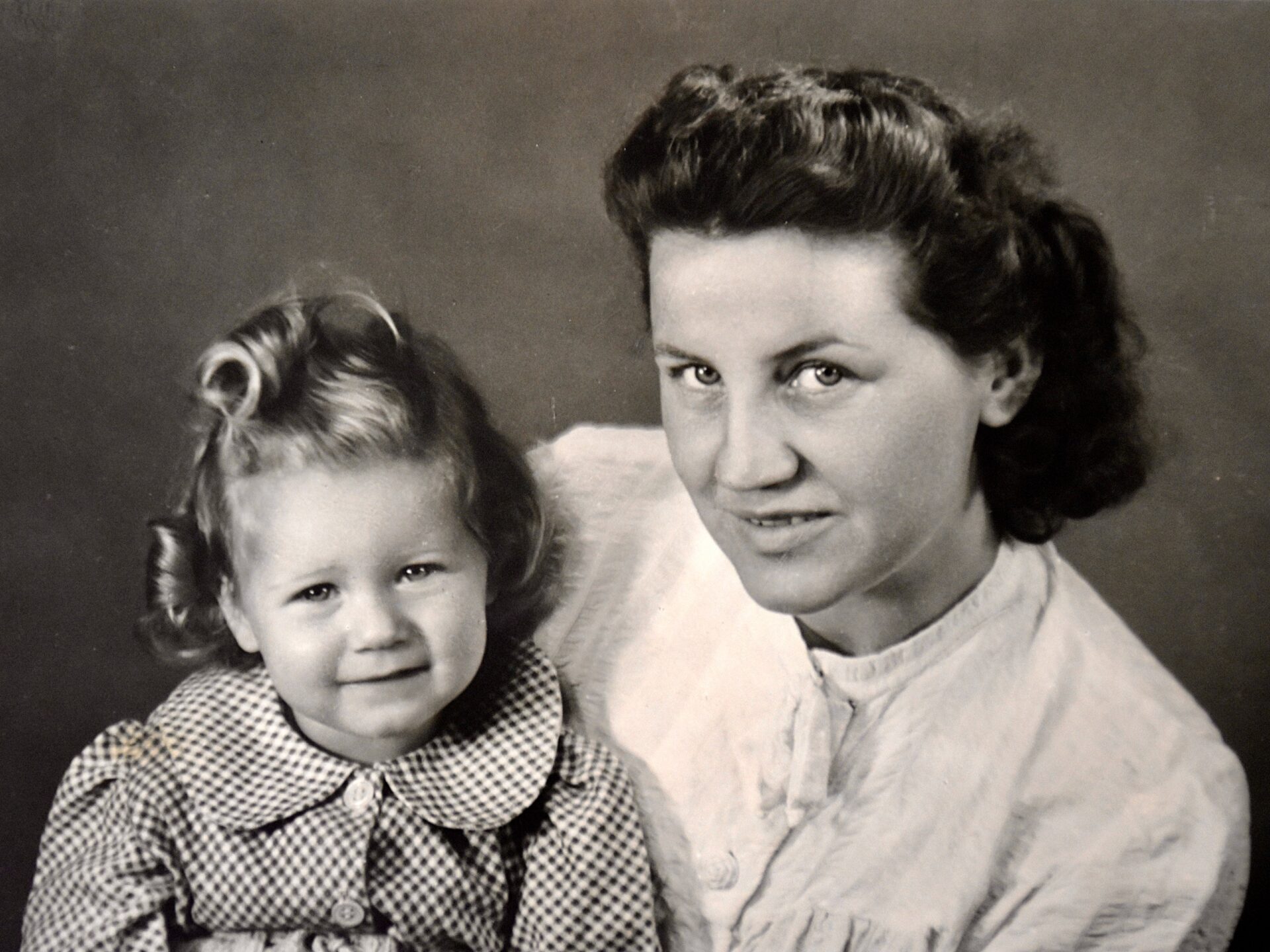


Written by Emily Cross.
16 minute read

Losing someone who raised you is unlike any other kind of grief. They’ve always been there, your constant, your fallback. And now, without warning, you’re left trying to figure out how to cope with the death of a parent and you’re left staring at the rest of your life with a silence you never prepared for.
While we all approach how to deal with grief in our own way, many of us find that as the months go by our feelings and emotions become clearer and perhaps a little easier to process. Something that many experience, however, is a sudden return to that initial shock and disbelief as the death anniversary approaches.
As a provider of direct cremation services, we believe the help and support we offer should extend far beyond the initial period of grieving, and we want to support you in any way we can. We hope that this guide will provide some semblance of comfort as you look to navigate the death anniversary of one of the most important people in your life.
Key takeaways:

It may be the case that the death of your parent feels like it is happening all over again as the anniversary approaches. You may remember the funeral poems that were read during the service, what your fellow mourners said to you, and how you felt at specific points of the day. All of this is perfectly understandable given the impact it may have had on you at the time.
The anniversary of a parent’s death can carry a weight that’s hard to explain. For some, it’s a day filled with reflection and emotion. For others, it might pass quietly, with feelings that are hard to pin down. However you feel, whether it’s raw or distant, heavy or calm, it’s valid. This person shaped your world, and whatever comes up for you is part of that truth.
For many, taking time to mark the date can offer space to grieve, to remember, to honour, and to keep something of their legacy alive. It might also give you a moment to pause and think about how their presence still shapes your life, and what you want the coming year to hold.
Having your own family rituals is something that may give you a sense of permanence and familiarity that you can return to each year. The nature of the ritual is something that will vary from family to family and also from person to person within any given family. Seeing it as your own personal choice may help you feel like you have some degree of control over the impending nature of the anniversary. Finding something that you feel reflects what your parent would want to be remembered for while at the same time allowing you to feel comfortable and validated may prove to be a useful approach.
Every person and every family is different, but you may find it helpful to briefly consider some common choices that others choose to make. You are by no means constrained to choosing from this list, but it may help you to think and reflect on how you wish to mark the anniversary in your way:
Taking some time to think about how you want to mark the death anniversary of your parent and discussing a few initial ideas with other people may help you to feel connected with the date. It could be a way to continue moving forward on your healing journey so that you can continue to process the complex web of emotions that the situation has presented you with.
The act of remembering a loved one is something that will vary from one faith and culture to the next, and all approaches are equally valid. Some find that saying prayers together helps them feel connected, while others are more focused on traditional readings or making offerings.
In families that encompass multiple faiths, belief systems, and cultures, a degree of understanding and compromise may be needed at this time. We are all entitled to grieve and mourn in our own way, but you may wish to take a small step back and consider how anything you suggest could be viewed by other members of the family. A small additional thought may be all it takes to avoid unwittingly causing offence or upset at a time when emotions and feelings can run high.
Navigating the first birthday after the death of a loved one may feel overwhelming, especially if you feel like you have moved beyond the feelings of abandonment and shock that many report feeling when their parent dies. The anniversary can bring back many of those initial intense reactions, and recognising that this is a natural part of the grieving and healing process may help you to work through things in a way that allows you to be kind to yourself.
Knowing how to cope with the death of a parent is something that many people might struggle with at first, but there is nothing wrong with admitting this to yourself. It is not a judgement about your ability to cope or your place in the world — you are experiencing a profound shock and sense of grief and you owe it to yourself to be understanding and kind to yourself.
You may find there are days when you feel like you can carry on as normal only to find that something seemingly innocuous happens and you then feel overwhelmed. This is something many of us experience. Taking a moment to acknowledge the painful, emotional nature of the day may help you to normalise how you are feeling, and this applies to the days and weeks before and after the anniversary as well.
Some find that embracing rituals and using the comfort and sense of permanence they provide as a way to begin the act of reflection helps. In time, you may find that the little traditions and rituals you have put into practice can support and aid you in healing and achieving some sense of acceptance.
You may also find it helpful to know that you are never alone during this difficult and challenging time in your life. There are therapists, counsellors, and support groups out there that are available when you feel ready. Finding someone to talk to who is outside of the immediate family may help you feel like you can process your emotions without having to be quite so aware of those around you.
Remembrance is something we all approach in different ways with some finding that traditional memorials are most appropriate while others prefer solace and the development of feeling energy when someone dies — there are also many other intermediates. Because the importance of emotional support from friends and family is hard to overstate, we wanted to share a few initial ideas that you may wish to consider:
Taking a moment to think about how each of the above may make you feel could help you find your own source of comfort and act of remembrance. Personalising it in any way you see fit could help you to acknowledge the death of your parent while also celebrating their legacy and feeling like you are continuing to grow closer to them on some level.
There are many different symbols of grief and finding one that feels right to you and your siblings may be something that takes time. This is not a sign that you haven’t processed your emotions or that you don’t know how to express yourself, it’s more a sign of the complexity of the emotions you are feeling right now. Here are some ideas that you may wish to consider when the time feels right:
Many people also find that doing something purely by themselves helps, especially if they want to sit with their emotions and process them in a way that feels more gradual. Something as simple as watching your parent’s favourite film or reading their favourite book may help you to feel connected with them in your own personal way.
Taking time out of your day to help someone else who is mourning the death of a parent a year (or more) ago is something that can make a real difference. A relative or close friend will appreciate your efforts and knowing that you were there for them when they needed you, perhaps without them even having to ask, will provide them with a real sense of comfort as they continue to heal.
One of the difficult parts of helping someone else through a death is knowing how to present your offer of help. Because we all grieve in our own way, you may find it helpful to briefly consider a few of the following key points:
Something as simple as being on the other end of the phone and checking in with them when the time feels right could make all the difference. By acknowledging the death of their parent respectfully and sensitively, you can show that you are aware of their feelings and that you are there for them.
Tradition, respect, and reflection are at the centre of many of the different religious and cultural practices you will see throughout the UK and around the world. While an exhaustive list would be beyond the scope of our guide, you may find it helpful to consider a few of the general themes that different religions and cultures choose to follow:
The point here is that all approaches are equally valid, especially in cases where the family extends across cultural and religious borders. Taking a moment to consider how your parent would wish to be remembered, as well as thinking about any potential sensitivities in the wider family and circle of friends, may help you to bring everyone together in a way that helps all of you heal.
Preparing emotionally for future anniversaries is something that may feel overwhelming or out of reach now, but it may be something that you wish to return to in the weeks and months ahead. Something as simple as planning rituals and memorial activities in advance may help you ease the emotional strain that you are under, allowing future anniversaries to become more about celebrating life and sharing memories.
When you feel emotionally ready, embracing ongoing remembrance as a way to continue healing may help you find something to hold onto as the years go by. Your parent can live on through the acts of remembrance you and the rest of the family embrace, allowing you to feel that they are still with you on some level.
Taking a moment to think about what your parent means to you and the legacy they have left behind may help you as the anniversary of their death approaches. If you find that doing so causes you to reflect on your legacy and how your children may be forced to grieve your own death, you may find that taking back some element of control helps.
When you feel emotionally ready, our kind and compassionate team can talk you through our range of *prepaid funeral plans that are designed to help you put your affairs in order at your own pace. We can also help you *compare funeral plans when you feel ready to have the discussion.
Although it may not feel like it right now, your healing journey will continue and you will find the time and space you need to process the emotions you are experiencing. Acknowledging how you feel and being kind to yourself may help you to keep moving forward in a way that you feel comfortable with.
*Terms and conditions apply. You will receive a funeral plan summary before purchase.



Meeting with family and friends for a communal meal or group walk may help you connect with people you care about in a setting that is less formal than a traditional memorial service. The choice is very much a personal one and you, of course, have the freedom to shape it in any way you see fit. Talking with a couple of close relatives and gauging how they feel may help you to arrive at an annual tradition that helps all of you grieve.
Lighting candles, group walks, a family meal, or even just calling close relatives you may not have seen for some time are all appropriate choices. We want you to know that ‘appropriate’ is such a subjective term in this context and that you have the option to start any type of ritual you and the rest of the family feel comfortable with. Using our ideas as a starting point may help you to find something that feels right, but you are by no means obliged to follow them.
Grief may often come back up to the surface in a way that makes you feel like you have suddenly returned to those initial days and weeks after the death of your parent. This is a natural part of the healing process and not a sign that you have suddenly regressed and will never recover. Being aware of how you feel and acknowledging it may help you validate your feelings and be kinder to yourself if you find that you are surprised by the extent of your grief.
Many religious people find that they feel most connected with respectful prayers that pay tribute to a life well lived and remember the legacy that was built along the way. Others may find that they wish to say celebratory prayers that focus on the many positive things their parent did during the course of their life and the beautiful memories that they have left behind.
Validating their feelings and making yourself aware of the fact that they may suddenly seem like they have taken a step backward on their healing journey is important. While it may be tempting to try and solve any issues you feel they are placing on their own shoulders, many people will simply want someone to listen to how they feel.
The death anniversary of a parent is a time when many of the initial feelings that arrived after their death come back to the surface. Showing them that you are a constant presence in their life that they can rely on may be the best approach here.
staging site last replicated: MISSINGNO.